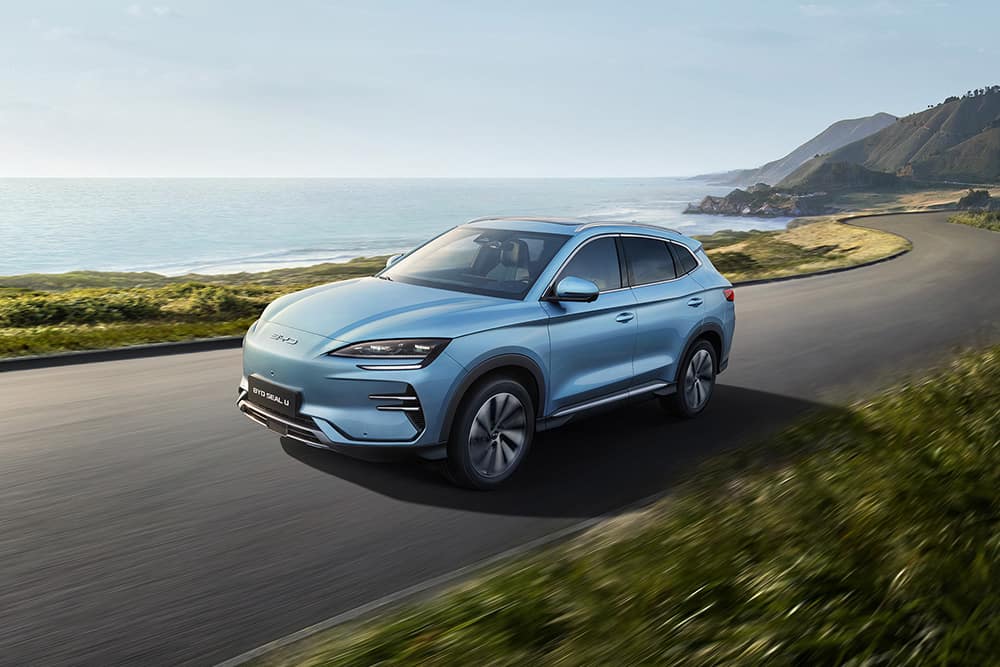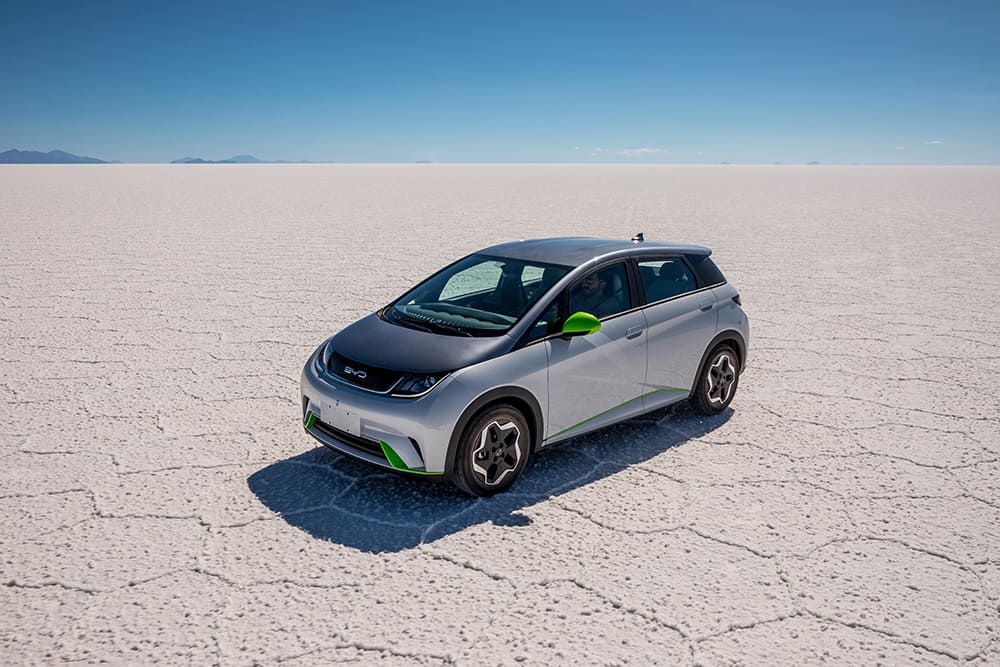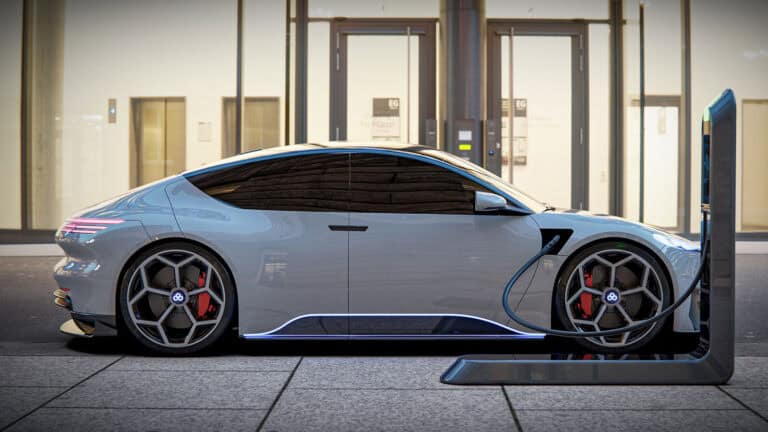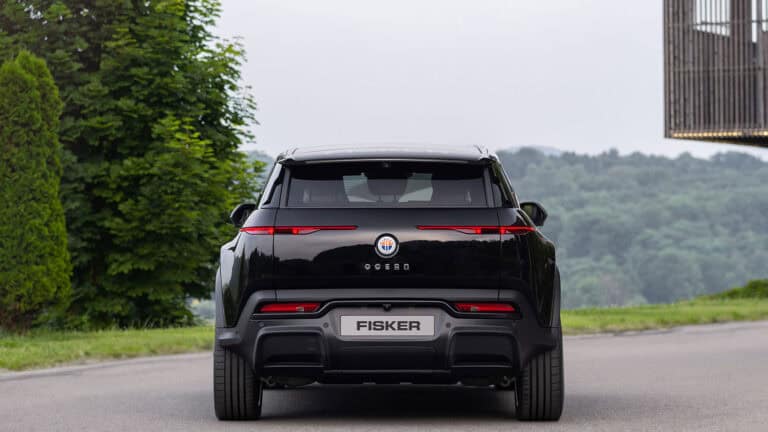- U.S. concerns grow as Chinese firms like BYD Mexico consider Mexico for EV production, raising worries about China’s dominance.
- Mexico offers low labor costs and has a free-trade agreement with the U.S., making it an attractive location for Chinese EV companies.
- The BYD Seagull, a compact Chinese EV with a starting price of approximately $11,400, would undercut U.S. prices significantly.
The U.S. federal government is concerned about China’s domination of the global EV market. The federal clean vehicle tax credit excludes batteries and materials sourced for electric cars from China and other “Foreign Entities of Concern.” This is the main reason why so few EVs qualify for the federal EV tax credit so far in 2024. But Chinese EV automakers like BYD are eyeing Mexico to manufacture their cars for the North American market.
ADVERTISEMENT
U.S. companies are moving quickly to produce EV batteries domestically. One example is LG Chem’s recent strategic alliance with General Motors, supplying GM with over 500,000 tons of cathode materials, substantial enough to power 5 million high-performance electric vehicles.
The ability to export vehicles from Mexico allows Chinese companies to benefit from trade rules in the region. Under the current U.S.-Mexico-Canada (USMCA) agreement, if 66% of a vehicle’s parts are made in North America, manufacturers can export them to the U.S. duty-free. This would avoid the higher tariffs the companies would otherwise pay.
Three Chinese EV companies have established assembly plants in Mexico. Foton is a truck, bus, and SUV maker; JAC Motors offers three EV models in the Mexican market; and bus and truck manufacturer Shacman has a Mexican plant.
In 2021, Mexico was the sixth-largest exporter of EVs to countries including the U.S., Belgium, and Norway. General Motors, Ford, BMW, and Audi are also producing EVs in Mexico or have plans to soon. Mexico also has a local EV maker, Zacua.
China’s Move Into EV Production in Mexico

Chinese electric automakers MG, BYD, and Chery are all looking at sites to build new factories in Mexico. The MG electric car factory deal is potentially worth $1.5 billion to $2 billion, and BYD is reported to be considering a Mexican factory investment worth hundreds of millions. BYD is backed by well-known investor Warren Buffet, causing concern for Tesla and other EV producers.
According to a Nikkei report, BYD has launched a feasibility study for the plant in Mexico and is currently negotiating with officials over terms, including the factory’s location. Mexico offers low labor costs and has a free-trade agreement with the U.S., making it an attractive location for automotive factories. China’s state-owned Chery, along with its subsidiary brand Jetour, have announced initiatives to build factories in Mexico.
ADVERTISEMENT
U.S. officials, as well as original equipment manufacturers, are worried about China’s move into Mexico. Chinese expansion into Mexico could serve as a “back door” to Chinese entry into the American EV market. So far, only a few Chinese EVs have gained traction in America due to high trade barriers and political tensions. One example is Swedish carmaker Volvo, offering the 2024 Volvo EX90 Fully Electric SUV and other electric models. Volvo is owned by parent Geely Holding Group, a Chinese company.
Major U.S. automakers Ford, GM, and Stellantis have warned that Chinese cars could spell doom for their own prospects. Ford has projected it will lose up to $5.5 billion on its EV program in 2024. Ford launched a dedicated “skunkworks” team, working separately from the company’s main engineering operations, to design a small, low-cost EV. This small EV could compete with the BYD Seagull EV, said Jim Farley, Ford’s CEO. Ford is also evaluating its battery strategy as China continues to lead in EV battery production. In January 2024, Elon Musk, Tesla CEO, predicted that Chinese automakers would “demolish” global rivals without trade barriers.
Tesla’s Gigafactory in Nuevo León, Mexico
Gigafactory Mexico (also known as Gigafactory 6) is a proposed Tesla manufacturing plant to be constructed near Monterrey, Mexico. Tesla expects to begin production at the facility as soon as 2026. When fully operational, the factory will cost approximately $10 billion and employ thousands of workers.
Gigafactory Mexico was officially announced by Mexican President Andrés Manuel López Obrador in February 2023. At Tesla’s investor day the following day, Tesla CEO Elon Musk confirmed the announcement. It is rumored that Tesla’s planned small, low-priced EV, tentatively called the Tesla Model 2, will be produced at the facility to compete with low-cost Chinese EVs. It is expected to sell for around $25,000.
ADVERTISEMENT
Lawmakers Believe That Urgent Action Is Needed To Counter China’s “Unfair Practices”
Rep. Mike Gallagher (R-WI) and Rep. Raja Krishnamoorthi (D-IL), Chairman and Ranking Member of the House Select Committee on the Strategic Competition Between the United States and the Chinese Communist Party, sent a letter in November 2023 to the United States Trade Representative, Ambassador Katherine Tai. The letter expressed concern about the Chinese Communist Party’s potential plan to flood the U.S. market with new automobiles, particularly low-priced electric vehicles.
The members requested that “the Office of the United States Trade Representative consider whether to launch a new Section 301 investigation into these practices and the harm they pose to the American automotive industry and American workers.”
EV Adoption in Mexico

Mexico has more than 53 million vehicles on the road, of which around 0.5% were hybrid or electric in 2022. Of these vehicles, only 5% are Chinese, according to the Mexican Association of the Automotive Industry (AMIA).
High prices for electric vehicles are a barrier to adoption in Mexico. The average annual wage is under $17,000. The average cost of an electric vehicle is currently about $23,300. EVs remain too expensive for most Mexicans and are impractical to drive in most areas of the country. The country as a whole currently lacks enough charging stations to facilitate widespread adoption. So even if BYD does build in Mexico, it’s unlikely that the people who are actually making the vehicles will be able to drive those cars themselves.
ADVERTISEMENT
Will China’s Moves Into Mexico Destroy the American EV Market?
Automakers and lawmakers are understandably concerned about Chinese EV plants opening in Mexico. Due to its proximity to the U.S. and its favorable free-trade agreement with us, Mexico is a very attractive destination for BYD and other Chinese EV makers. The BYD Seagull, a compact EV with a starting price of approximately $11,400, would undercut U.S. prices significantly. If the 27.5% import tariff on Chinese vehicles were added, the Seagull would come in at less than $15,000. According to data from Cox Automotive, parent of Kelley Blue Book, the average price for electric cars in the U.S. was $53,469 in July 2023.
Selling Mexico-produced Chinese EVs in the U.S. could have numerous negative impacts on the American EV market. Mexican labor rates, as well as Chinese labor rates, are much lower than American labor rates. In America’s automotive sector, manufacturing typically employs mostly higher-paid union workers. For now, the 27.5% import tariff on Chinese vehicles could be avoided if the vehicles were produced in Mexico.
As China hasn’t done much business with the U.S. yet in regard to vehicles, there are other things to consider. One is safety. Chinese vehicles would have to conform to American safety standards, which hasn’t been addressed by Chinese companies yet. Another is that the Chinese companies would need to establish repair and sales facilities in the U.S. So, a massive influx of vehicles wouldn’t happen until these things are prepared or resolved.
However, price is a strong motivator, as Americans have adopted vehicles from Japan and South Korea in large numbers for that reason.
ADVERTISEMENT

IMAGES: BYD
FTC: We use income-earning auto affiliate links. Learn more.




























2 Responses